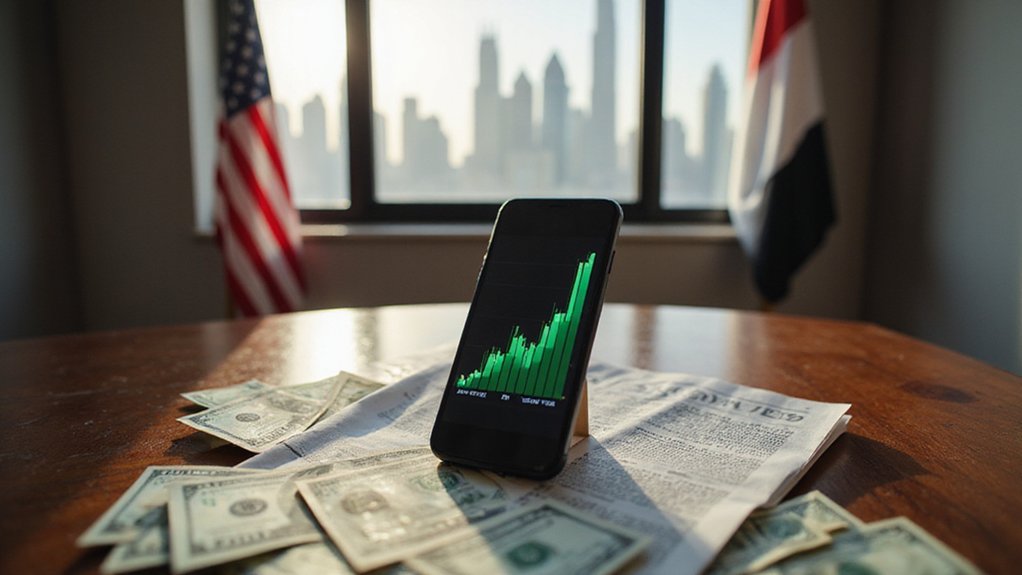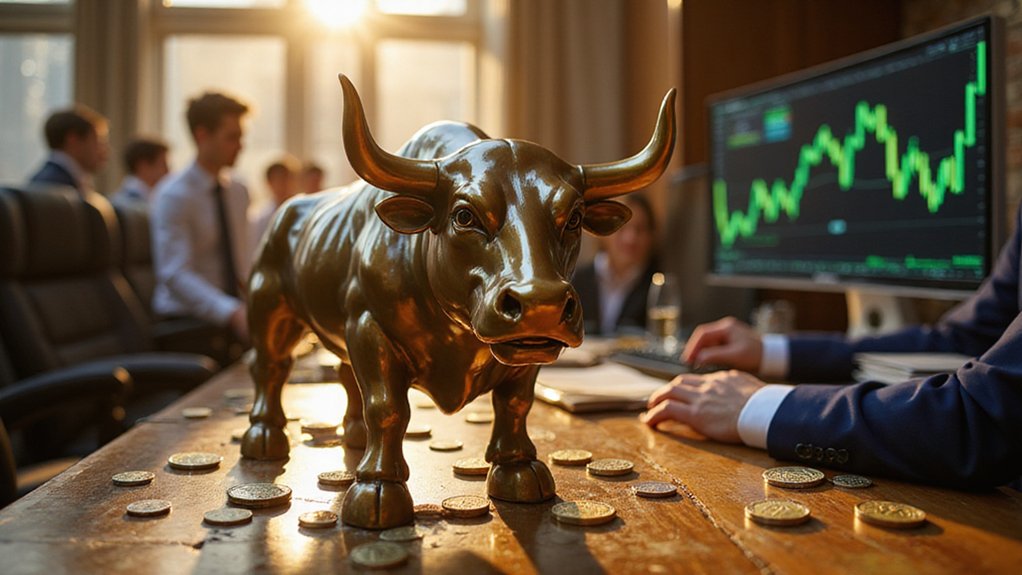Donald Trump’s latest financial maneuver has catapulted his family into cryptocurrency‘s upper echelons, with a staggering $2 billion investment from an Abu Dhabi state-backed firm flowing through their nascent digital venture. The arrangement, formalized in October 2024, establishes World Liberty Financial (WLF) as the conduit through which MGX—the Emirati investment vehicle—will funnel capital into Binance, the behemoth cryptocurrency exchange that has weathered its own regulatory tempests.
This peculiar triangulation of interests—American political dynasty, Middle Eastern sovereign wealth, and a cryptocurrency platform whose founder recently admitted to money laundering violations—raises eyebrows among financial ethicists. The mechanism itself is relatively straightforward: MGX purchases WLF’s “USD1” stablecoin, which then facilitates transactions with Binance, presumably generating fees and influence for the Trump enterprise at each juncture. Trump family interests are protected through their 60% ownership stake in World Liberty. Unfortunately, visitors seeking more information may encounter a 404 error page if they follow outdated links to the developing story.
The collision of dynastic wealth, petrodollars, and crypto’s gray-market kingpins creates an ethical quagmire of unprecedented proportions.
The timing proves particularly remarkable, given Trump’s dramatic reversal on cryptocurrency. Having once dismissed the entire asset class as a “scam,” he now embraces it as a cornerstone of family wealth—such conversions, while not unprecedented in business, seldom occur with such profitable immediacy.
Eric Trump, serving as the venture’s public face, has positioned the deal as merely sound business, though critics question whether foreign government investment in a former president’s enterprise represents something more consequential. The arrangement has apparently enriched the Trump portfolio substantially, with crypto assets now constituting approximately 40% of Trump’s estimated net worth—an astonishing $2.9 billion infusion. Beyond Binance, other major exchanges like Coinbase and Kraken have maintained distance from the controversial deal while continuing their focus on security and regulatory compliance.
Binance’s involvement adds another layer of complexity. Its founder, Changpeng Zhao, has publicly sought a Trump pardon following his anti-money laundering conviction—creating what governance specialists might call an unfortunate appearance of quid pro quo potential.
As cryptocurrency increasingly intersects with geopolitics, this deal exemplifies how digital assets blur traditional boundaries between sovereign interests, private wealth, and political power. Whether regulators have the appetite—or authority—to scrutinize such arrangements remains an open question in this rapidly evolving landscape.









